LVIV — The Japanese have a concept of forest bathing for health. Joe Rogan promotes daily ice baths for a little shock to get you going in the morning. But in Ukraine, people often experience missile-and-drone baths, and so it was in the early hours of last Friday, when Russia launched what seems to have been its biggest ever sky assault upon Ukrainian cities. It was the first major Russian attack upon Ukrainian since the summer, when Ukraine disrupted Moscow’s missile-launching Black Sea Fleet.
Since then, it’s been a brutal New Year.
Just before 5 a.m. today, we had warnings of at least twenty-one missile-carrying jets prowling the skies of the Russian Federation, many having taken off from an air base named after Frederich Engels, co-author of The Communist Manifesto. By 7 a.m., the Russians began pounding Kyiv with at least twenty missiles, including the hard-to-stop hypersonic Kinzhals. Never before has Moscow sent such a deadly concentration to the capital. Details are still fuzzy and more attacks are expected as air-raid alarms flicker on and off throughout the country.
“Missiles are flying almost as fast as we type,” wrote a volunteer on a private missile alert chat group amid the frenzy.
At the same time it was hammering Kyiv, Moscow was also sending morning missiles to the center of Kharkiv. That city, thirty miles from Russia, has sprung back to life the past ten months despite the odd attack, but during New Year’s weekend the hell reminiscent of March 2022 returned.
Russia sent twenty-three missiles last Thursday and Friday; more massive strikes on Saturday, including a direct hit upon the five-star Palace Hotel frequented by journalists; and then in the early hours of New Year’s Eve, a bonus drone attack, that among other things, destroyed my regular coffeeshop. Miraculously, no one was killed. This morning Moscow slammed Kharkiv again, including near the city’s central Freedom Square, and there are fatalities.
This Russian escalation comes after months of calm in most Ukrainian cities.
“Everyone except the guys from the army are very unnerved from today’s events,” an American whose windows were rattling all morning in Kyiv told me. It’s a statement that echoes much of what I hear.
After two years of full-scale war, why are these events unnerving? Most Ukrainian cities away from the front have been peaceful the past months. In my Ukraine report on Chicago’s WGN Radio I’ve risked repeating myself, reminding everyone that Ukraine is doing much better this year than last. Last winter it was like the Middle Ages: much of it was spent in frigid candlelit darkness without power or electricity. Nearly every week from October to January, the Russians sent nearly 100 missiles through Ukraine.
Meanwhile, as part of the counteroffensive, Ukrainians quietly began to use weapons from the United Kingdom to hit the bases and ships from which Russia launched missiles last winter. Ukraine forced the Russian Black Sea Fleet to flee from its port in occupied Crimea far away to mainland Russia. As a result, although Ukraine has already had weeks of well-below freezing temperatures, there have been no infrastructure attacks. Even yesterday’s massive onslaught did not harm the power grid.
A few voices have been encouraging the West, especially Washington, to strike during the disruption of the Russian navy. Retired American general Ben Hodges, referring to long-range missiles, tweeted this past week, “Imagine if Ukraine had another hundred ATACMS, TAURUS, Storm Shadow, or SCALP? Crimea would be untenable base for Russia … no navy, no air force, no drone launches against innocent civilians, no logistics hub to sustain Russian defenses in southern Ukraine…no Kerch Bridge.”
But despite Ukraine’s success with the smattering of long-range weapons it received, Washington has refused to send more. In fact, the spending package over which Congress has been dithering does not include anything that would allow Ukraine hit military targets in Russia.
And so while the West waited for months, Russia received its resupply. That resupply hit early Friday.
This new attack began rather slowly last Friday, around 3 a.m. when Russia sent Iranian-made suicide drones throughout Ukraine. Here on a foggy night in Lviv, it was like watching in slow-motion that scene from Indiana Jones and the Raiders of the Lost Ark, when the horrifying demons are released.
We saw a lightshow through the clouds, as the red sparks of air defense sought to shoot down the encircling explosive-laden drones.
The air defense shot down the drones but all this was but a preamble. Around 7 a.m., an hour after the first all-clear alarms sounded, as people were going back to sleep, we had reports of missiles incoming throughout the country.
“For me, the worst part was the anticipation,” said Claire, an Irish humanitarian volunteer in Lviv, who was experiencing for the first time the sounds of war. “I was watching the Telegram [chat app] channels.
“When I saw ‘Lviv, incoming in 10-12 minutes,’ ‘Lviv, 2-3 minutes,’ you just brace for impact,” Claire said. “Then, when you hear the explosion, it’s almost like a guilty feeling of relief that it wasn’t you. Bizarre. I can’t imagine living through this for two years.”
Somehow people get used to it. When I saw the report that the Russian missiles would arrive in about ten minutes, I went out into the morning sunshine, the temperature in the high forties. I walked into a church, where priests were chanting Mass for the fifth day of Christmas, which Lviv takes seriously.
After a few minutes, I stepped outside, and moments later: THUD. THUD. THUD. In quick succession, three missiles hit, rattling windows, but it didn’t stop the chants. I popped back into the church and inside it was as if nothing had happened; the priests were chanting, while parishioners stood in silence crossing themselves. More rockets followed.
But it wasn’t nothing that happened. Russia had fired 122 missiles and thirty-six drones in what was then the biggest aerial barrage of the war.
“Surprisingly enough I had no emotions at all during the shelling per se,” said Max Burtsev, a Kharkiv entrepreneur and founder of the volunteer charity Volunterterska. “I was just laying in the bed, calculating the number of explosions and planning the next fundraising campaign for our militaries. But when I read the news about the shelling in other cities, when I saw the numbers of dead and injured throughout Ukraine, that was the moment when I felt enormous hate and aggression towards Russia and its people.”
Ukrainians are indeed angry. The challenge, as I’ve realized the past weeks, is that this anger whether expressed by President Zelenskiy in DC or Ukrainians on X, doesn’t play well with many in America, who are also angry but seem unable to connect their experience with Ukraine’s.
I asked a friend who is an influential officer in the Ukrainian military, whom I’ll call Taras, what he made of Russia’s renewal of major assaults on cities.
“Such a blow feeds propaganda that Ukraine is weak,” he said, “but it’s actually an easy question of measurement. … We don’t have, for example, nuclear weapons. Does it mean that we are weak? No, because our people stayed and our people fight. They really fought. Western intelligence said you have three days until Kyiv falls and now we have almost two years of full scale invasion and eight years, years before it, and Ukraine’s still here.”
From soldiers to politicians to baristas to artists, most Ukrainians with whom I speak are defiant, whatever the state of their nerves.
“To carry out this bombing, the Russians spent many months collecting missiles and drones, because they don’t have enough strength to deliver serious blows like last year,” said Ukrainian artist Mykhailo Skop, who goes by the name Neivanmade. He’s created some of the most iconic posters of the war.
“We repelled the vast majority of missiles,” Skop was quick to note, “and a few days ago we shot down a healthy Russian ship that launched drones over sleeping Ukrainian cities.
“Figuratively speaking, on a planetary scale, the further you are from war, the more tired you are of it,” Skop says. “We never get tired, because we are just protecting our own home from fire.”



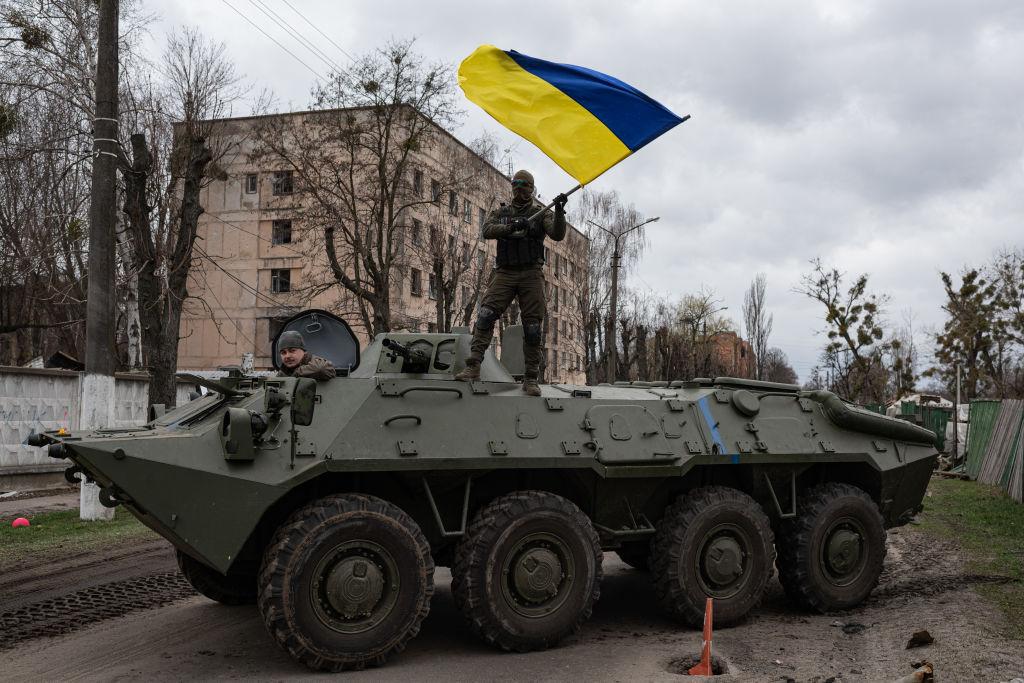








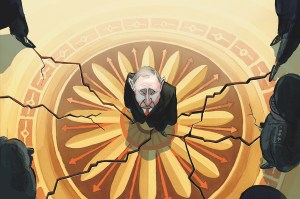
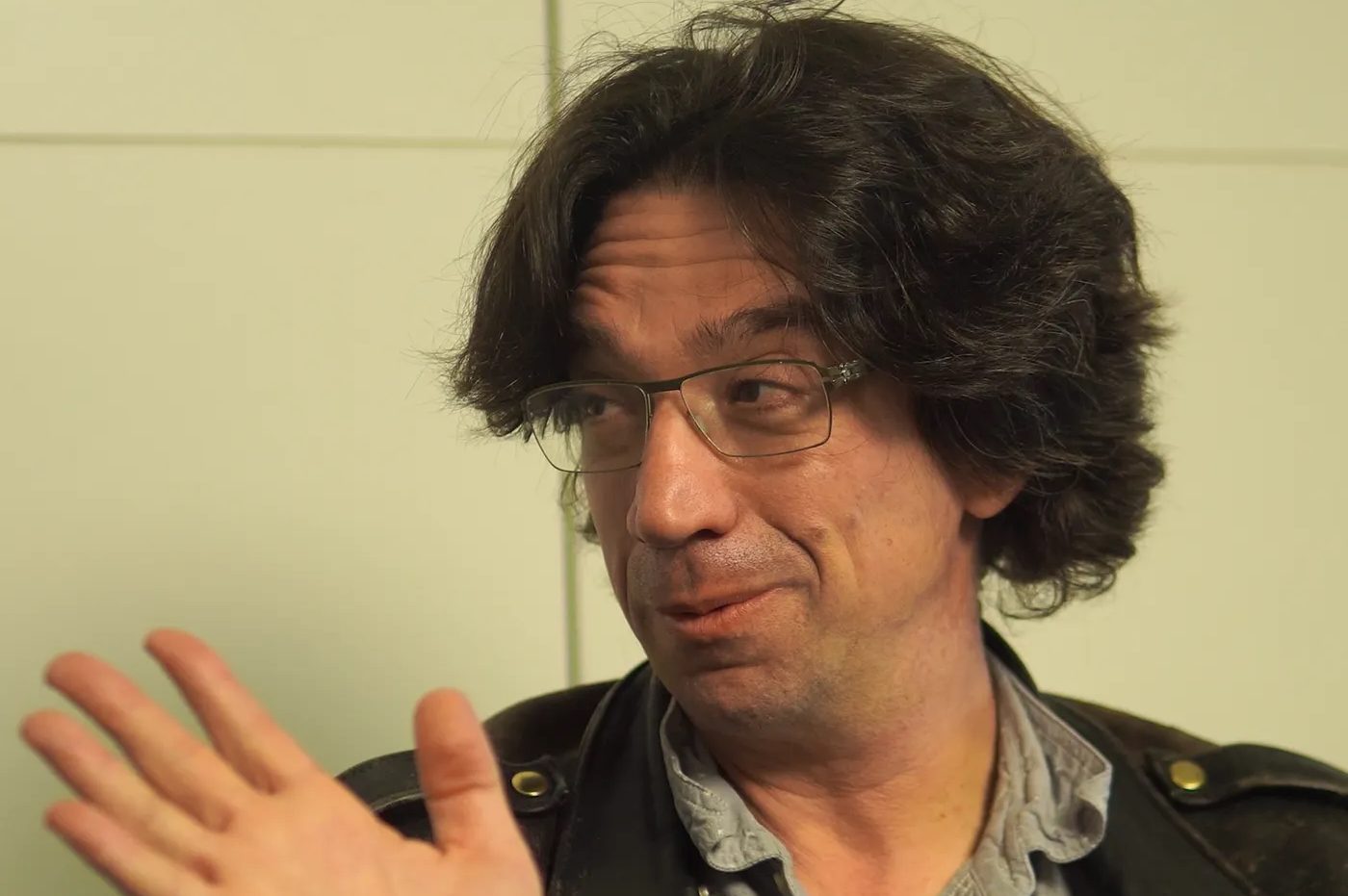

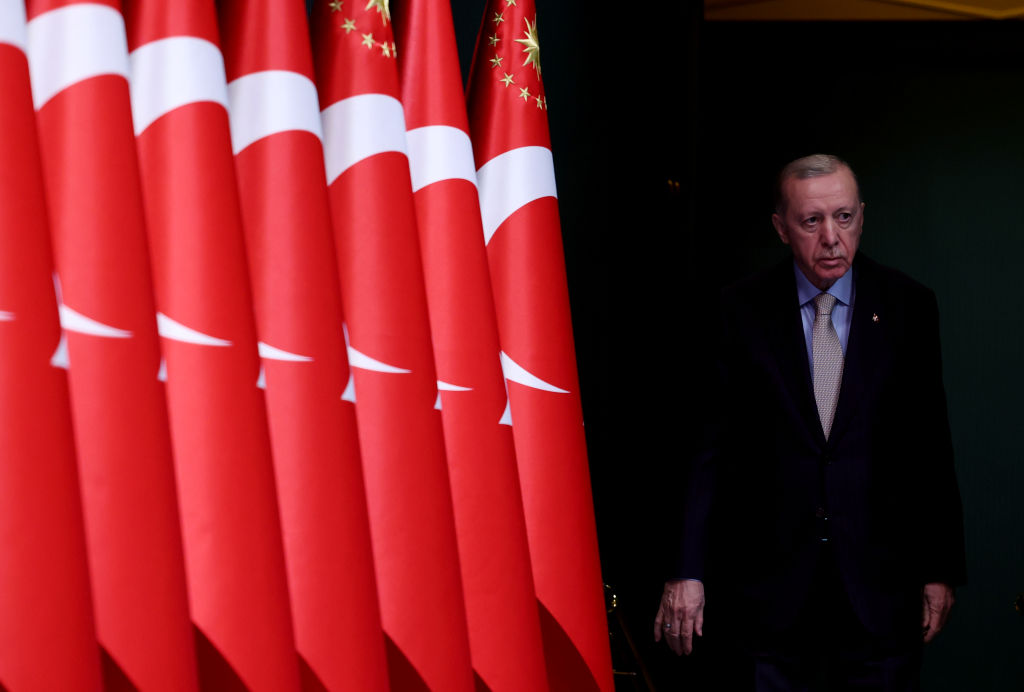


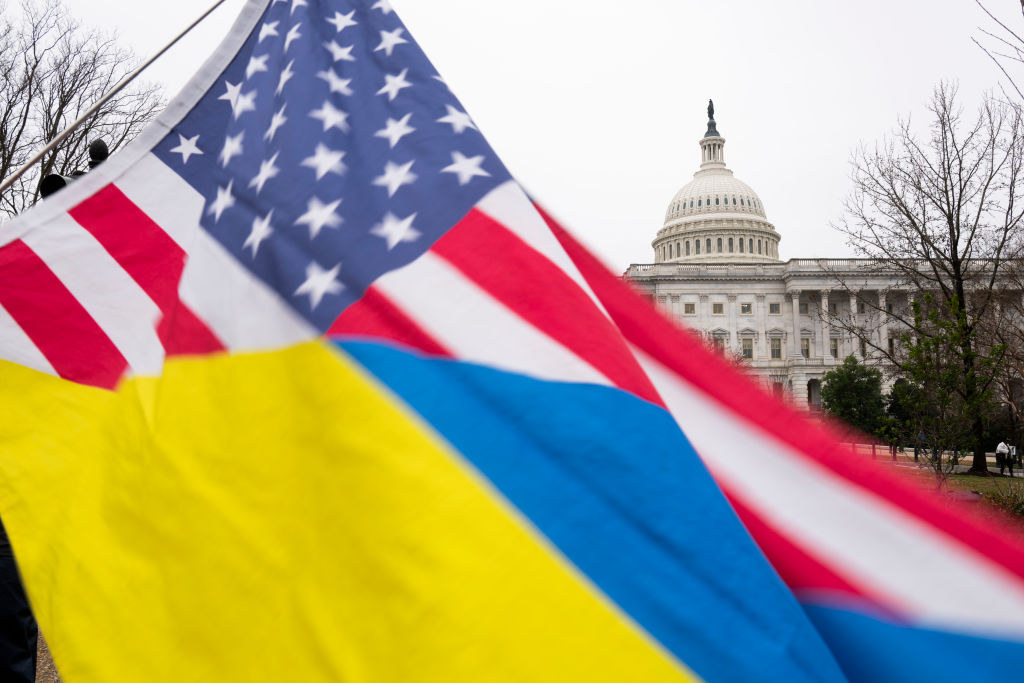







Leave a Reply